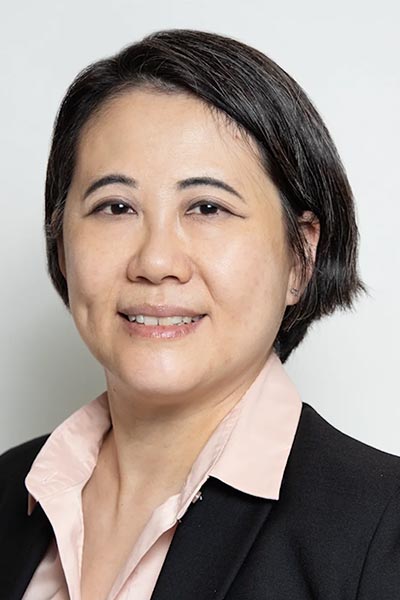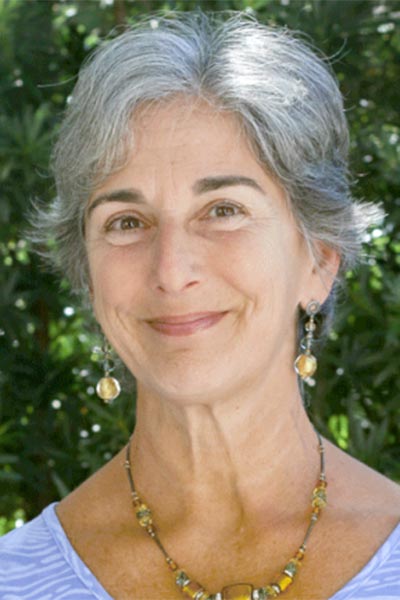Meet-the-expert sessions offer opportunity to engage with thought leaders from around the world
Notable names in cancer research will share their expertise in individual interactive presentations during the American Association for Cancer Research Annual Meeting 2024.
A series of five meet-the-expert sessions will be held Monday, April 8, and Tuesday, April 9, in the late afternoon—a shift from the early-morning start times of the past. Despite the time change, attendees can expect the same engaging environment and valuable insights from distinguished leaders and scientists, including 2024-2025 AACR President-Elect Lillian L. Siu, MD, FAACR.
A list of each presenter and their presentation topics can be found below, and the latest descriptions and details may be found in the Annual Meeting app and online program planner. Recordings of all sessions will be available on-demand for Annual Meeting registrants via the Virtual Meeting Platform through July 10.

Meet the Expert: Lillian L. Siu, MD, FAACR
Circulating Tumor DNA to Enable Interception of Molecular Residual Disease in Solid Tumors
Monday, April 8, 5 – 5:45 p.m. PT
Ballroom 6 CF – Upper Level – Convention Center
Siu is the BMO Chair in Precision Cancer Genomics at the Princess Margaret Cancer Centre in Toronto, Canada. She is the AACR President-Elect for 2024-2025 and will serve as one of the Chairs of the AACR Annual Meeting 2025.
In this session, Siu will discuss emerging circulating tumor DNA (ctDNA) technologies (both tumor agnostic and tumor informed) with sufficient sensitivity and specificity to detect molecular residual disease (MRD) that are actively being evaluated for their clinical utility in solid tumors. There is strong existent evidence that MRD detection predicts clinical relapse, thus opening opportunities for interception studies to eradicate microscopic residual disease and increase cancer cures. Using various solid tumors as examples—including head and neck squamous cell cancer, breast cancer and melanoma—the design, implementation, and challenges of cancer interception clinical trials will be discussed. Important concepts to consider in such trials include patient selection, limits of detection, and other performance characteristics of ctDNA assays, tumor fraction, interception strategies, endpoints (e.g. ctDNA clearance, relapse-free survival, etc), multidisciplinary collaboration, and trial logistics.

Meet the Expert: Jennifer Rubin Grandis, MD, FAACR
Identifying and Measuring Gender Inequities in Science and Medicine
Monday, April 8, 5 – 5:45 p.m. PT
Room 15, Mezzanine Level, Convention Center
Grandis is the Robert K. Werbe Distinguished Professor in the Department of Otolaryngology-Head and Neck Surgery at the University of California, San Francisco. She was inducted as a Fellow of the AACR Academy in 2022 for illuminating research on genomic alterations and key signaling pathways in head and neck cancer with the goal of enabling precision medicine studies.
In this session, Grandis will discuss how, despite cumulative evidence from multiple quantitative and qualitative research studies documenting that women scientists experience higher rates of discrimination based on sex, change remains elusive. She will present the findings of a qualitative research study where she conducted in-depth, semi-structured, in-person interviews with 52 women and 52 men who were medical school faculty members at 16 institutions across the United States in 2019. Institutions were recruited to seek diversity in geography, ownership (private or public), and prestige. Within institutions, purposive sampling was used to recruit equal numbers of women and men and to seek diversity in degree type (MD, PhD), age, and career stage. A coding scheme was developed through iterative analysis of the interview transcripts. All interview transcripts were then coded with the goal of identifying intersections between features of the academic medicine ecosystem and experiences of and responses to gender inequities. The session will explore the institutional metrics that should be iteratively assessed. We cannot solve a problem we don’t see and we cannot correct inequities we cannot measure.

Meet the Expert: Sangeeta N. Bhatia, MD, PhD, FAACR
Improving Cancer Detection with Nanotechnology
Monday, April 8, 5 – 5:45 p.m. PT
Ballroom 6 B, Upper Level, Convention Center
Bhatia is the John J. and Dorothy Wilson Professor of Engineering, Director of the Marble Center for Cancer Nanomedicine at the Koch Institute for Integrative Cancer Research, and Investigator of the Howard Hughes Medical Institute at the Massachusetts Institute of Technology. She was inducted as a Fellow of the AACR Academy in 2024 for innovative research dedicated to harnessing micro- and nanotechnologies for cancer diagnostics, drug delivery, tissue regeneration, and disease modeling, creating noninvasive nanosensors to detect and profile tumors, and for significant contributions to improving the diagnostic and treatment strategies available for cancer patients.
In this session, Bhatia will discuss the need for additional predictive tools to drive clinical decision-making in cancer care. Her lab has looked to the world of miniaturization tools that originated in computer chip manufacturing as a resource to probe tumor microenvironments in novel ways. The presentation will introduce two technologies that leverage size-dependent trafficking of nanomaterials and describe their use in mouse models for early detection, drug response monitoring, and tumor mutational profiling.

Meet the Expert: Kenneth C. Anderson, MD, FAACR
Myeloma as a Paradigm for Developing Novel Therapies Targeting Tumor in its Microenvironment
Monday, April 8, 5 – 5:45 p.m. PT
Room 29, Upper Level, Convention Center
Anderson is Director of the Jerome Lipper Multiple Myeloma Center at Dana-Farber Cancer Institute and Kraft Family Professor of Medicine at Harvard Medical School. He was inducted as a Fellow of the AACR Academy in 2015 for his contributions to translational and clinical advances in multiple myeloma and is one of the founding editors-in-chief of the AACR Journal, Blood Cancer Discovery.
In this session, Anderson will discuss how the use of novel agents (immunomodulatory agents, proteasome inhibitors, CD38 MAbs, BCMA, and GPRC5D T cell redirected therapies) targeting the tumor cell in its microenvironment has transformed the treatment paradigm and markedly improved patient outcome in multiple myeloma. The session will examine novel strategies for diagnosis and monitoring myeloma and its precursor conditions. It will also describe the bench-to-bedside translation of current targeted and immune therapies, as well as novel next-generation strategies to overcome resistance and immunosuppression and further improve patient outcome. Achieving increased extent of response along with restoring immune function has great potential to achieve long-term disease free survival and potential cure.

Meet the Expert: Gerrit A. Meijer, MD, PhD
A Multitarget FIT for Inexpensive Large-Scale Early Detection of Colorectal Cancer
Tuesday, April 9, 5 – 5:45 p.m. PT
Ballroom 6 DE, Upper Level, Convention Center
Meijer is Head of Research & Innovation in the Department of Pathology and Head of the Division of Diagnostic Translational Oncology at the Netherlands Cancer Institute/Antoni van Leeuwenhoek Hospital. His lab has been working for about a decade on developing a new and inexpensive stool-based test suitable for large-scale colorectal cancer screening. He is a member of the AACR Annual Meeting 2024 Education Committee.
In this session, Meijer will discuss how colorectal cancer accounts for approximately 10% of all cancer cases worldwide and is the second leading cause of cancer-related deaths. Regular screening, best organized as population-based programs, is the most effective approach to reduce colorectal cancer incidence and associated mortality. The faecal immunochemical test (FIT), which targets the human haemoglobin protein, is most widely used for this purpose. However, it leaves room for improvement, especially regarding the detection of high-risk precursor lesions of colorectal cancer, of which advanced adenomas are the most common. The presentation will focus on the discovery and extensive clinical validation and utility testing of a novel multitarget FIT (mtFIT) and its potential to cost-effectively improve large-scale colorectal screening programs, thus further reducing CRC incidence and associated mortality.
More from the AACR Annual Meeting 2025
View a photo gallery of scenes from Chicago, continue the conversation on social media using the hashtag #AACR25, and read more coverage in AACR Annual Meeting News.

